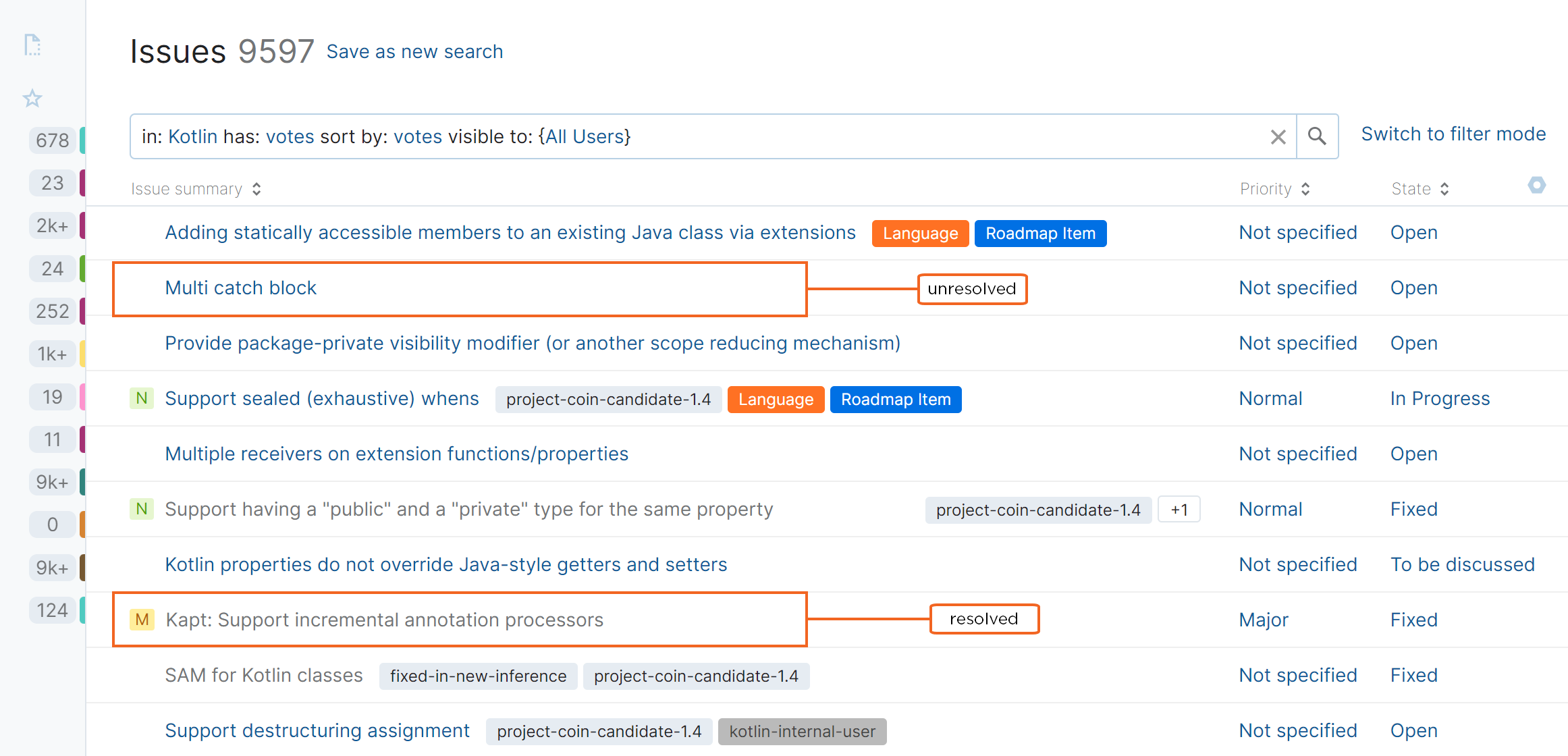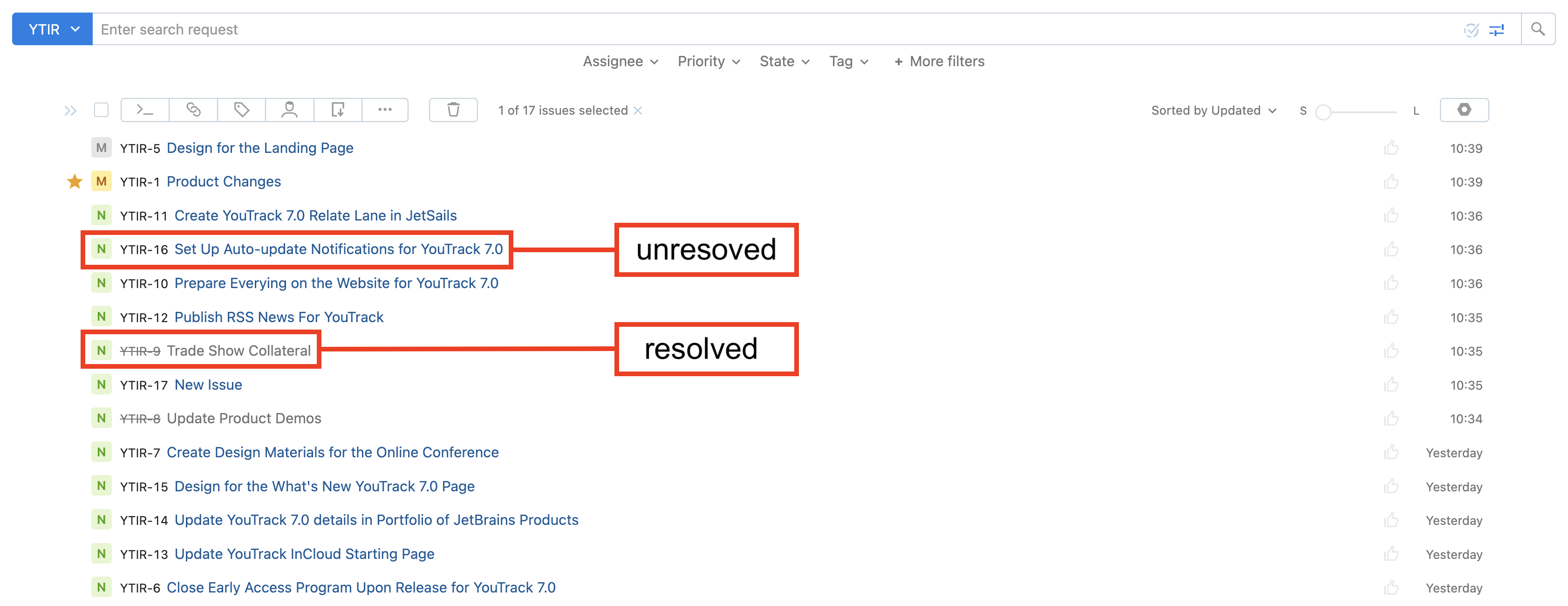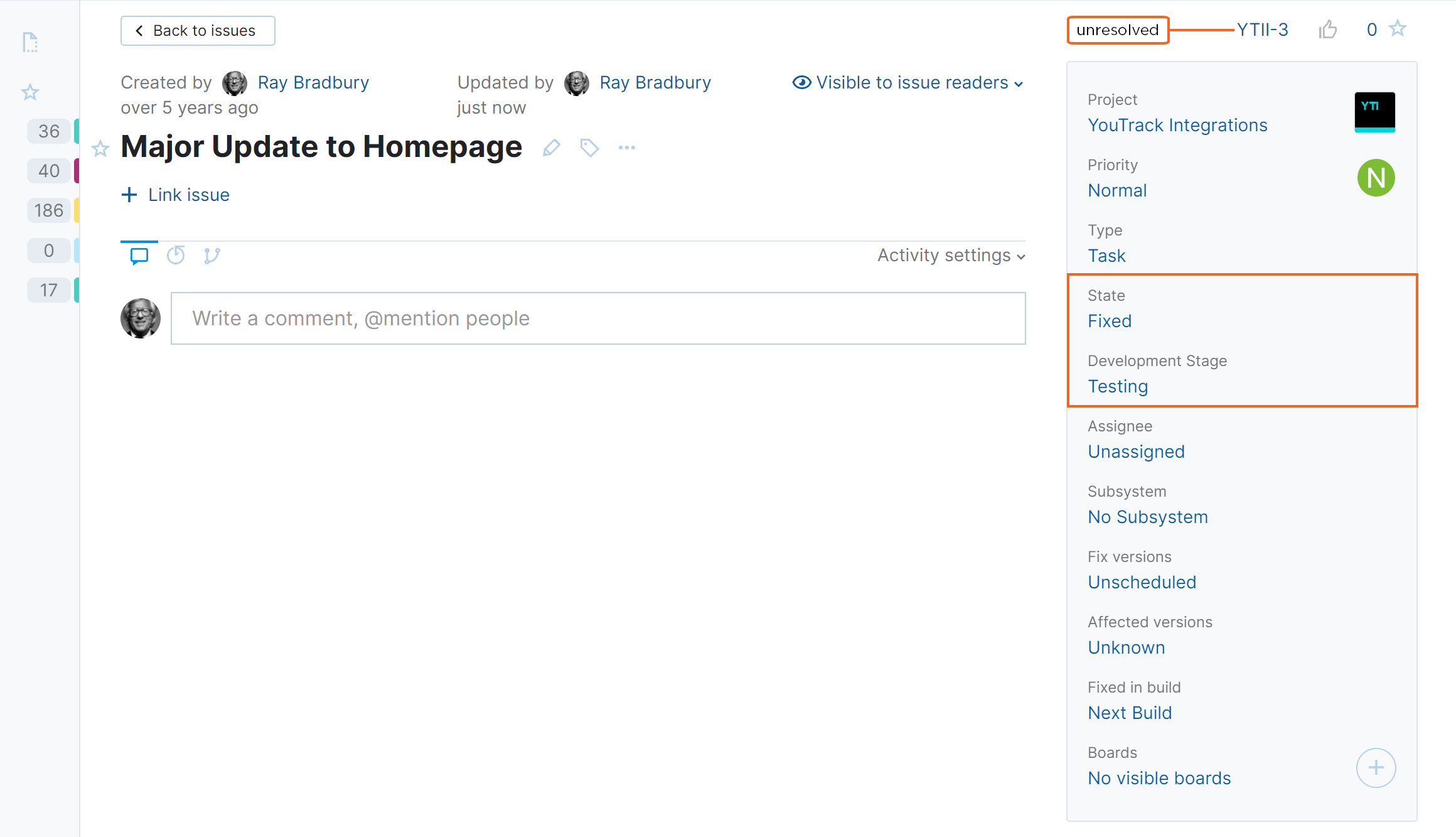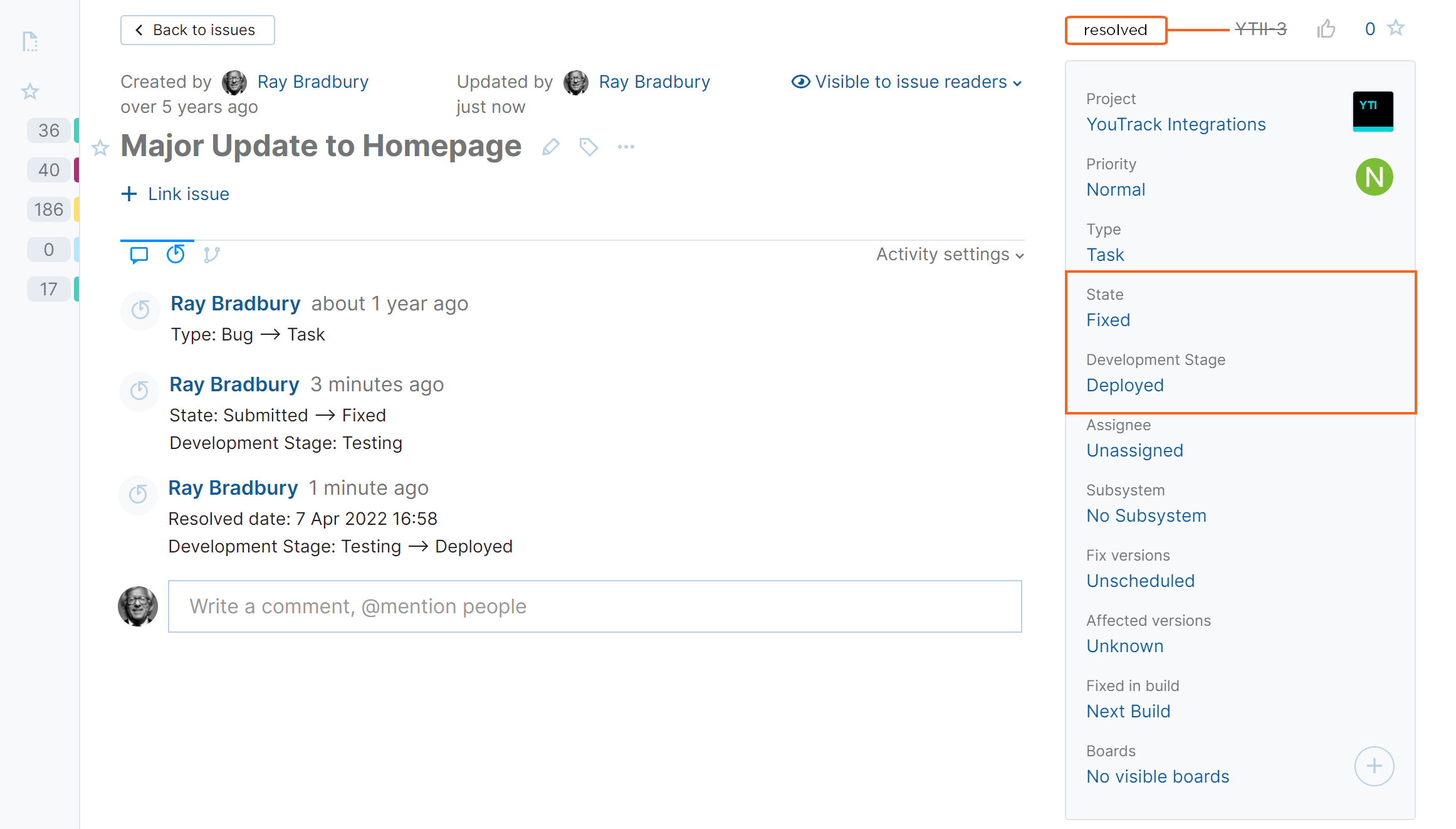Resolve Issues
In YouTrack, issues are classified as either unresolved or resolved. This classification is determined by custom fields that store a state type.
Each value in a state-type field has an additional Resolved property.
If the Resolved property is deselected, there's still work to be done in issues that are assigned the corresponding value for the state-type field.
If the value is marked as Resolved, no further effort is required for issues that are assigned the corresponding state.
One of the default fields that is preconfigured for every YouTrack installation is the State field. For each of the values in this field, the state for the Resolved property is set as shown in the following table:
Deselected (Unresolved) | Selected (Resolved) |
|---|---|
|
|
Issue fields in YouTrack are fully customizable. This means that values that are marked as resolved in the default State field or any other state-type field may or may not be marked as resolved for issues in your project. If you question whether a state properly reflects the resolution status for issues in a project, reach out to the project administrator. Project admins can configure the Resolved property for any value in a state-type field independently from the values used for the same field in other projects.
To resolve an issue, all you usually have to do is change the value for a state-type field to a resolved state. For situations where additional effort is required, read Resolving Issues with Multiple State-type Fields.
This classification is reflected in the visual presentation of the issue.
In unresolved issues, the issue ID is presented in blue text.
For resolved issues, the issue ID and summary are presented in gray text. The issue ID is shown in strikethrough text.
The following example illustrates the difference between resolved and unresolved issues in the Issues list:
Whenever the value for a state-type field changes from an unresolved state to a state that is considered to be resolved, the visual presentation is updated in the issue.
This classification is also referenced in the search query language with the keywords Unresolved and Resolved. These search attributes filter for issues that are assigned any state that is considered to be unresolved or resolved, respectively. For more information, see Keywords.
Resolving Issues with Multiple State-type Fields
There are no restrictions in YouTrack that block you from using multiple state-type fields in a project. If a project uses more than one custom field that stores a state type, the issues are not resolved until all state-type fields are assigned values that are considered to be resolved.
The following example shows an issue with two state-type fields: Request State and State. Even though the State is set to Fixed, which is considered to be resolved, the current value for the Development Stage field is not.

When the value for the State field is changed to a resolved state, the issue is resolved as well.

While this type of setup is fully supported in YouTrack, we generally advise against it. Most users are confused by the fact that they have to update values in two or more different fields to resolve an issue. For best results, stick to one state-type field per project.
Archiving Issues
YouTrack only uses the Resolved property for values in state-type fields to classify issues. Once an issue is assigned a resolved state, that's it. You don't need to update any additional properties to mark an issue as "closed" or "complete".
At the same time, there isn't a single property that lets you mark an issue as "archived". All the issues that belong to active projects, whether they are resolved or not, are available in the system.
Instead, you have the ability to archive a project. When you archive a project, all the issues that belong to the project become inaccessible. The project itself is hidden from search queries, commands, reports, agile boards, and so on. For more information, see Archive a Project.



